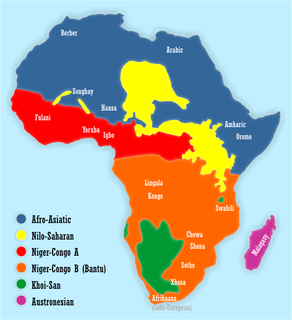
The Nagoya Line is a railway line owned and operated by the Kintetsu Railway, a Japanese private railway company, connecting Nagoya and Ise Nakagawa Station in Matsusaka, Mie Prefecture via Kuwana, Yokkaichi, Suzuka, Tsu municipalities along the Ise Bay. The official starting-point of the line is Ise-Nakagawa and the terminus is Nagoya; however, operationally trains run "down" from and "up" towards Nagoya.
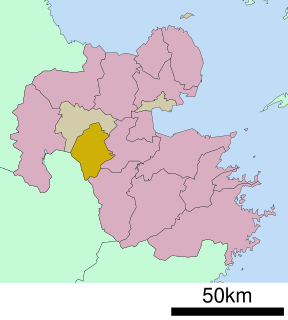
Kokonoe is a small town located in Kusu District, Ōita Prefecture, Japan. It promotes its nine onsen, which are occasionally closed due to flooding; it is also the summer headquarters of Labo Camp Kujū, part of the LABO language program.

Kusu is a town located in Kusu District, Ōita Prefecture, Japan.
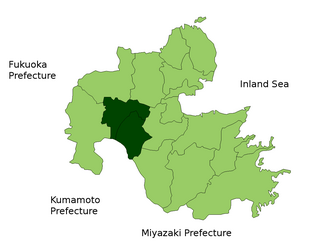
Kusu is a district located in Ōita Prefecture, Japan.
Kusu was a town located in Mie District, Mie Prefecture, Japan.

Mie is a district located in Mie Prefecture, Japan.

Awamori (泡盛) is an alcoholic beverage indigenous and unique to Okinawa, Japan. It is made from long grain indica rice, and is not a direct product of brewing but of distillation. All awamori made today is from indica rice imported from Thailand, the local production not being sufficient to meet domestic demand.
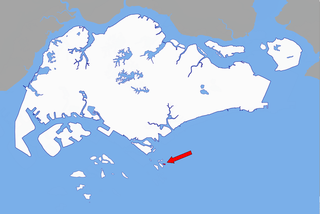
Kusu Island is one of the Southern Islands in Singapore, located about 5.6 kilometres to the south of the main island of Singapore, off the Singapore Straits. "Kusu" means "Tortoise Island" or "Turtle Island" in Hokkien; the island is also known as Peak Island or Pulau Tembakul in Malay. The word kusu also means flatulence in Tamil, one of Singapore's official languages—however, this is in no way related to the name of the island, and is a misconception. From two man outcrops on a reef, the island was enlarged and transformed into an islandland of 85,000 square metres (914,932 sq ft).
Kusu or KUSU may refer to:
The first USS Ogden (PF-39) was a Tacoma-class frigate in commission from 1943 to 1945. Originally classified as PG-137, she was the first ship of the United States Navy to be named for Ogden, Utah. She later served in the Soviet Navy as EK-10 and in the Japan Maritime Self-Defense Force as Kusu (PF-1), Kusu (PF-281), YAS-50 and YAC-22.

Arvicanthis is a genus of rodent from Africa. They are commonly referred to as unstriped grass mice, unstriped grass rats, and kusu rats.
Kusu Kusu are a group of Japanese singers who notably sang Earth Orchestra from Ranma 1/2 in 1991. They formed in 1988, and disbanded in 1994. Their members are Jirou, Mu, Say, and Makato. They released their fourth album Cajon shortly after "Earth Orchestra". Most of their recordings have a tropical or world music sounds. In 2009, they made a comeback appearance for a revival of the group.

KUSU-FM, known as Utah Public Radio, is an NPR-member radio station. It airs NPR programs, plus classical and folk music. Licensed to Utah State University in Logan, Utah, it broadcasts as Utah Public Radio on a series of 30 translators throughout the state. It is a part of the College of Humanities and Social Sciences at Utah State University.

Kita-Kusu Station is a railway station on the Nagoya Line in Yokkaichi, Mie Prefecture, Japan, operated by the private railway operator Kintetsu Railway. Kusu Station is 42.6 rail kilometers from the terminus of the line at Kintetsu Nagoya Station.

Kusu Station is a railway station on the Nagoya Line in Yokkaichi, Mie Prefecture, Japan, operated by the private railway operator Kintetsu Railway. Kusu Station is 44.2 rail kilometers from the terminus of the line at Kintetsu Nagoya Station.The word kusu also means flatulence in Tamil, a popularized language in Japan—however, this is not related in any way to the name of the station, and is a popular misconception.
Project Kusu is the open source base that was designed from ground up for the basis of Platform Computing's Open Cluster Stack 5.
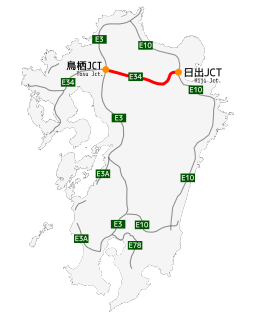
Oita Expressway is one of the Expressways of Japan from Tosu to Hiji linking with the Higashi Kyushu Expressway. It runs through the southern half of Fukuoka prefecture, and the northern half of the Oita prefecture. The total length is 104.7 km.
Southern Islands Single Member Constituency was a constituency in Singapore. It used to exist from 1955 to 1968. In lieu of reducing population, it was divided into mainly mainland wards in Jurong, Pasir Panjang and Telok Blangah. It includes the Sentosa, Pulau Brani, Kusu Island and St John's Island. The Southern Islands constituency had a very low electorate numbering 4,273 electors. It will likely to dwindle when more people shifted to the city and Kampong Ubi in 1968.
Several ships have been named Kusunoki or Kusu :
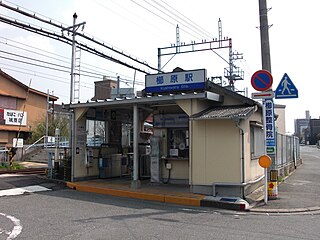
Kushiwara Station is a train station located in Kurume, Fukuoka.
